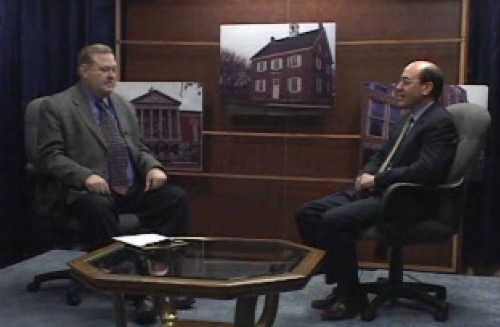In a related article, I review Medicaid “resource assessment” rules that allow you to protect certain assets when your spouse enters a nursing home. These rules are designed to make sure that the spouse in the community is not rendered penniless by having to deplete all of the couple’s resources to pay for a nursing home stay. The government recognized that these asset protection rules wouldn’t mean much if the healthy spouse didn’t also have sufficient income to meet his or her basic needs. As such, there are also “maintenance allowance” rules that make sure the healthy spouse has sufficient income to live.
To explain the “maintenance allowance” rules, let’s consider an example. Assume your husband enters a nursing home, and your assets have been spent down to the level where the Medicaid program starts paying his nursing home bill. In Pennsylvania, at this point, all of his monthly income, less a $45 personal needs allowance (which hasn’t changed since 7/1/07) must be paid to the nursing home as his contribution to the cost of his care. Examples of income are social security, pensions, interest, and dividends. However, if you are still living in the community and your income is below the minimum maintenance allowance, you will get to retain all or a part of his income. The basic minimum “maintenance allowance” effective as of July 1, 2023 is $2,465 per month. This minimum is increased if your housing expenses are greater than certain standard allowances, with a current maximum maintenance allowance of $3,853.50 (effective 1/1/2024) per month.
Taking our example further, let’s assume that your husband’s income is $1,800 per month, consisting of a $300 pension and Social Security of $1,500. Your income on the other hand is your Social Security of $1,465 per month. Without the special spousal protections, your husband’s income would go toward paying his nursing home bill and you would be stuck living on just your $1,465 Social Security payment. However, since the “maintenance allowance” rules allow you income of at least $2,465 per month, this means you get to keep at least $1,000 of your husband’s income. That is, when the $1,000 of your husband’s income is combined with your $1,465 Social Security, you have the $2,465 minimum.
These income protections sound great. However, if we follow this one step further, we’ll discover that there is a problem when the husband in our example dies. The problem is that his income often ends when he dies. That is, his pension will most likely end or be reduced, and his Social Security will also stop. While your Social Security may increase when your husband dies, after his death, your overall income is likely to be lower than the $2,465 minimum. Because of this problem, Pennsylvania used to have an option that would permit you to protect additional assets in lieu of keeping some of your husband’s income. In our example, you have an income need of $1,000 per month, and Pennsylvania used to permit you to keep additional assets that would have theoretically produced $1,000 each month for the rest of your life. However, as a result of changes first implemented by Pennsylvania on March 5, 2007 (and still in effect in January 2024), there are new ways for a low-income community spouse to protect additional assets. Navigating the new rules requires prompt action. As such, the low-income community spouse needs expert advice more than ever to preserve assets so he or she avoids impoverishment. The important thing to remember is the community spouse can take action to protect assets even AFTER their spouse enters a nursing home.
In general, no special action is needed to request the basic “maintenance allowance”. However, if you wish to protect additional assets, you should seek expert advice before you consume those assets to pay for your spouse’s care. The bottom line is that taking proper steps when your spouse enters a nursing home could make the financial side of the long-term care decision less burdensome.
For other nursing home and Medicaid information check out the articles on Medicaid and Your House and Gifts to Qualify for Medicaid.
